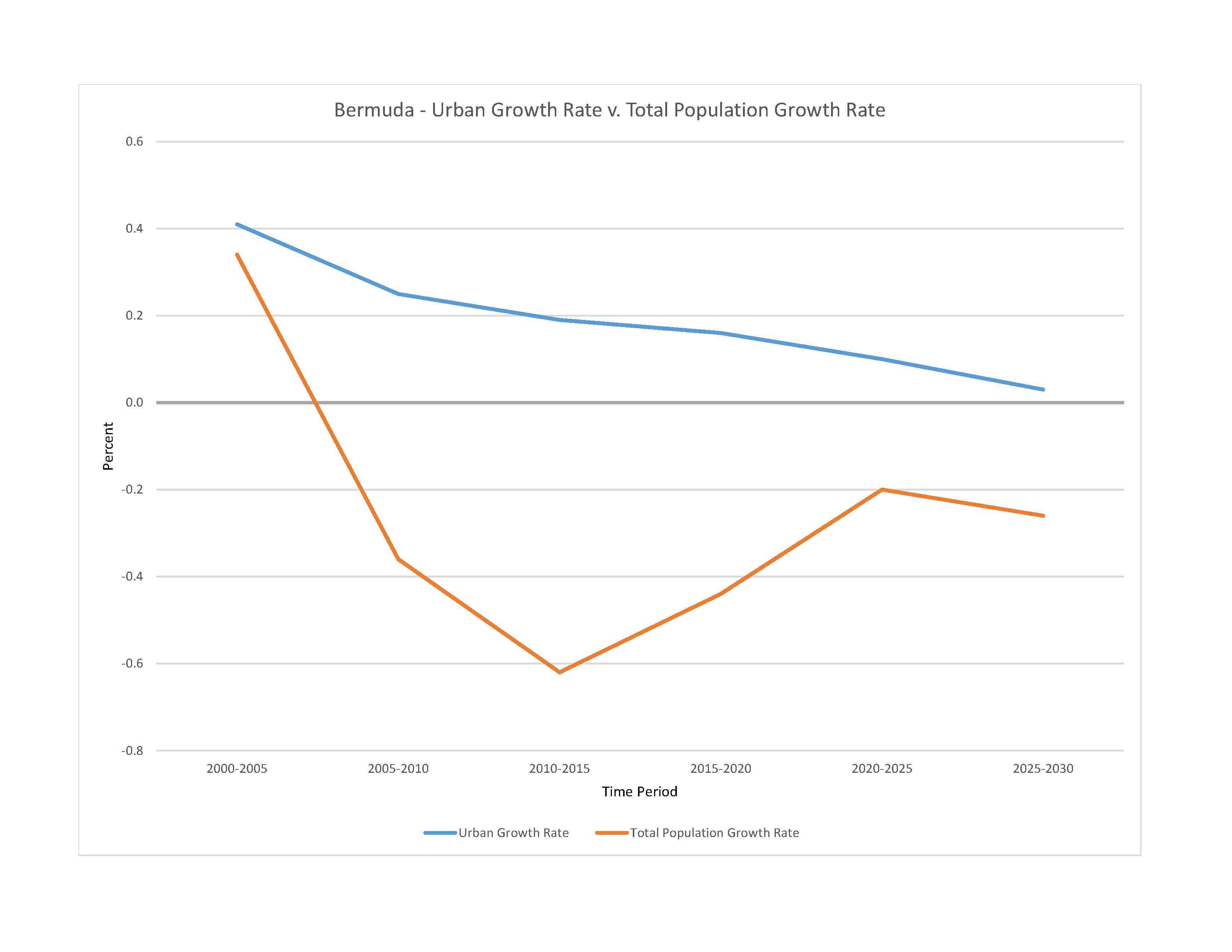
dense population and heavy vehicle traffic create serious congestion and air pollution problems; water resources scarce (most obtained as rainwater or from wells); solid waste disposal; hazardous waste disposal; sewage disposal; overfishing; oil spills
subtropical; mild, humid; gales, strong winds common in winter
agricultural land: 14.8% (2018 est.)
arable land: 14.8% (2018 est.)
permanent crops: 0% (2018 est.)
permanent pasture: 0% (2018 est.)
forest: 20% (2018 est.)
other: 65.2% (2018 est.)
urban population: 100% of total population (2023)
rate of urbanization: -0.2% annual rate of change (2020-25 est.)

carbon dioxide emissions: 0.61 megatons (2016 est.)
municipal solid waste generated annually: 82,000 tons (2012 est.)
municipal solid waste recycled annually: 1,640 tons (2012 est.)
percent of municipal solid waste recycled: 2% (2012 est.)
NOTE: The information regarding Bermuda on this page is re-published from the 2024 World Fact Book of the United States Central Intelligence Agency and other sources. No claims are made regarding the accuracy of Bermuda 2024 information contained here. All suggestions for corrections of any errors about Bermuda 2024 should be addressed to the CIA or the source cited on each page.
This page was last modified 04 May 24, Copyright © 2024 ITA all rights reserved.